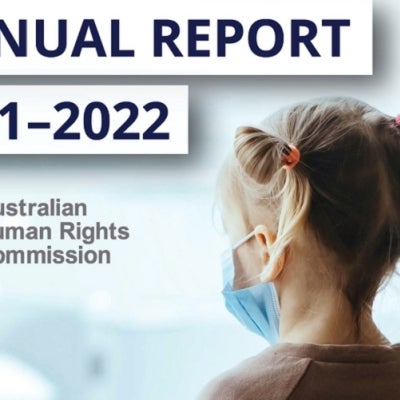Refine results
-
Aboriginal and Torres Strait Islander Social Justice1 June 2021Speech
AIATSIS Summit Keynote Address: Truth for change—Reckoning with our past and transforming our nation
Introduction and acknowledgements Opening in Bunuba. Good morning everyone. I acknowledge the Kaurna peoples whose lands we gather on for this conference—I pay my respects to your elders, past, present and emerging. I also acknowledge all our peoples who have come from countries—First Nations—from across this vast continent, carrying many diverse and interconnected languages, cultural… -
Rights and Freedoms6 June 2019Speech
Law, Lawyers and Human Rights
Law Week Breakfast Law Society of Western Australia Perth, 13 May 2019 Emeritus Professor Rosalind Croucher AM, President, Australian Human Rights Commission Acknowledgements Thanks to Greg McIntyre SC, President of the Law Society of Western Australia, for the wonderful invitation to speak at the opening of Law Week in Perth. I would like to begin my contribution by acknowledging the… -
Aboriginal and Torres Strait Islander Social Justice8 September 2023Speech
ICOMOS General Assembly and Scientific Symposium GA2023
Jalangurru lanygu balangarri - good afternoon everyone. Yaningi warangira ngindaji yuwa muwayi ingirranggu, Gadigal yani U. Balangarri wadjirragali jarra ningi – gamali ngindaji yau muwayi nyirrami ngarri thangani. Yaningi miya ngindaji Muwayi ingga winyira ngirranggu thangani. Yathawarra, wilalawarra jalangurru ngarri guda. For those of you who do not know me, my name is June Oscar. I am -
1 February 2024Conciliation register
2022-10-08
The complainant’s son is eight years of age and has Attention Deficit Hyperactivity Disorder , learning difficulties and sensory processing difficulties. The complainant alleged the respondent government public housing provider placed her and her son in unsuitable accommodation. In particular, she claimed the home was too crowded and did not offer enough space to set up occupational therapy … -
Rights and Freedoms30 November 2022Speech
Reforming Age Discrimination Law
Reforming Age Discrimination Law: Beyond Individual Enforcement, Alysia Blackham (2022) Panel discussion Emeritus Professor Rosalind Croucher AM President, Australian Human Rights Commission I am speaking today from the traditional lands of the Dharug and Gundungurra peoples and pay my respects to Elders past, present and emerging—and to the traditional custodians of the lands from wherever… -
Commission - General3 November 2022Publication

Annual Report 2021-2022
Complaint Statistics 2021-2022 Download PDF | Download Word You can access the Australian Human Rights Commission 2021 – 2022 Annual Report at the Australian Government Transparency Portal. The year in review The 2021–22 financial year has been an extremely challenging one for the Australian Human Rights Commission, as we have sought to secure the institution’s financial sustainability,… -
Rights and Freedoms17 January 2019Speech
Alice Tay Lecture in Law and Human Rights 2018 - ‘Rights-mindedness’
‘Rights-mindedness’ — making human rights real in public service and community understanding 70 years after the adoption of the Universal Declaration of Human Rights Alice Tay Lecture in Law and Human Rights 2018 Emeritus Professor Rosalind Croucher AM President, Australian Human Rights Commission Sir Roland Wilson Building Canberra 25 September 2018 Abstract A key function of the Australian… -
Rights and Freedoms5 May 2019Speech
40+ years of conciliation
The Australian Human Rights Commission and Conciliation—a 40+ year success story, but … National Mediation Conference, Canberra Emeritus Professor Rosalind Croucher AM [Professor Croucher spoke to this paper] Abstract A key responsibility of the Australian Human Rights Commission is to handle complaints of breaches of human rights. This is a role that the Commission in its various iterations… -
Aboriginal and Torres Strait Islander Social Justice25 August 2022Speech
Sir Wallace Kyle Oration
Jalangurru lanygu balangarri. Yaningi Yatharra ngindaji muwayi indirranggu, Kaurna yani U. It is wonderful to be here with you today on Noongar Boodja country. I would also like to acknowledge all the country from around this state and beyond that people may joining in from online. My deepest respects to all our elders past, present and emerging. I would like to express my thanks to Michelle…
Pagination
- First page « First
- Previous page ‹ Previous
- …
- 2
- 3
- 4
- 5
- Current page 6
- 7
- 8
- 9
- 10
- …
- Next page Next ›
- Last page Last »
